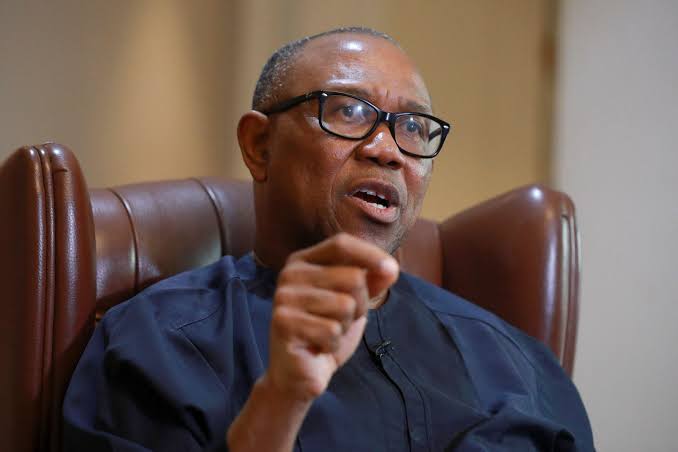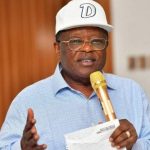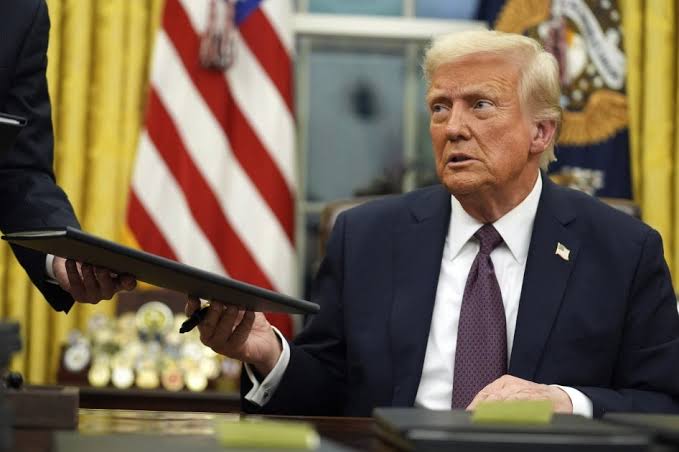
Peter Obi Calls for Urgent Action to Salvage Nigeria’s Electricity Sector

Peter Obi, the presidential candidate of the Labour Party, has highlighted the urgent need for government intervention to avert the looming collapse of the nation’s power sector.
Obi’s statement, issued on X, sheds light on the severe deficiencies plaguing the industry, emphasising the detrimental impact on economic growth and human development.
”It is rather distressing that the total installed capacity for Nigeria, a country of more than 200 million people and about 40 million small businesses, is a mere 13,000 Megawatts.’
Obi lamented the recurring system collapses and chronic shortages in electricity supply, attributing them to avoidable circumstances such as fire outbreaks at crucial transmission lines.
He underscored the stark disparity between Nigeria’s meagre 13,000 Megawatts (MW) of installed capacity and the substantially higher capacities of competitor nations like Egypt and South Africa.
According to Obi, the root of Nigeria’s power crisis lies in two key sectors: generation and transmission/distribution.
”After my consultation with experts in the sector, I have realised that the crisis of power supply in Nigeria relates to two major sectors: (1) generation, and (2) transmission and distribution.
“The major challenges of the generation sector are the lack of a regular supply of gas arising from the failure of the government in the last eight years to provide adequate gas infrastructure facilities, weak commercial availability of gas for power and failure to control the restiveness of angry youths leading to vandalism.”
Additionally, Obi criticised the lack of investment in modern technologies like Supervisory Control and Data Acquisition (SCADA), which has hampered effective coordination between the Transmission Company of Nigeria (TCN) and distribution companies (discos).
”If we had a good project manager, we would have massively increased generation, transmission and distribution capacity and enhanced policy coherence that would have crowded private sector investment in, to a degree that would have sustained rapid growth of the grid.”
Obi’s proposed solution involved the immediate formation of a technical task force comprising genuine professionals, devoid of political affiliations.
This task force would diagnose the sector’s challenges and implement corrective measures to address issues such as fire outbreaks, improve coordination between TCN and discos, and hold operators accountable for their technical responsibilities.
Furthermore, Obi called for the development of a comprehensive national electricity policy and implementation roadmap to guide future reforms and investments.
Highlighting the critical role of electricity in driving economic growth, Obi urged the federal government to demonstrate the political will necessary by appointing competent leadership and facilitating rapid improvements in the sector.
He emphasised the need to transition Nigeria from a nation reliant on generators to one with reliable, affordable, and abundant electricity.
Read: Israel To Decide Its Response To Iran Attack, Prime Minister Says
About The Author
Related Articles
What Do Countries Targeted by the United States Have in Common?
Look at the list. Iran, Palestine, Venezuela, Syria, Iraq, Nigeria, Somalia, Yemen....
ByWest Africa WeeklyMarch 4, 2026Three Doctors Suspended as Medical Council Probes Death of Chimamanda Adichie’s Son
Nigeria’s medical regulatory authority has taken the rare and serious step of...
ByWest Africa WeeklyMarch 4, 2026Night Gunfire Near Presidential Palace Sparks Tension in Ouagadougou
Gunshots were heard late on the night of February 28 into March...
ByWest Africa WeeklyMarch 3, 2026Uganda to Start Domestic Gold Purchasing Programme to Boost Reserves
Uganda’s central bank has announced plans to launch a domestic gold buying...
ByWest Africa WeeklyMarch 3, 2026











